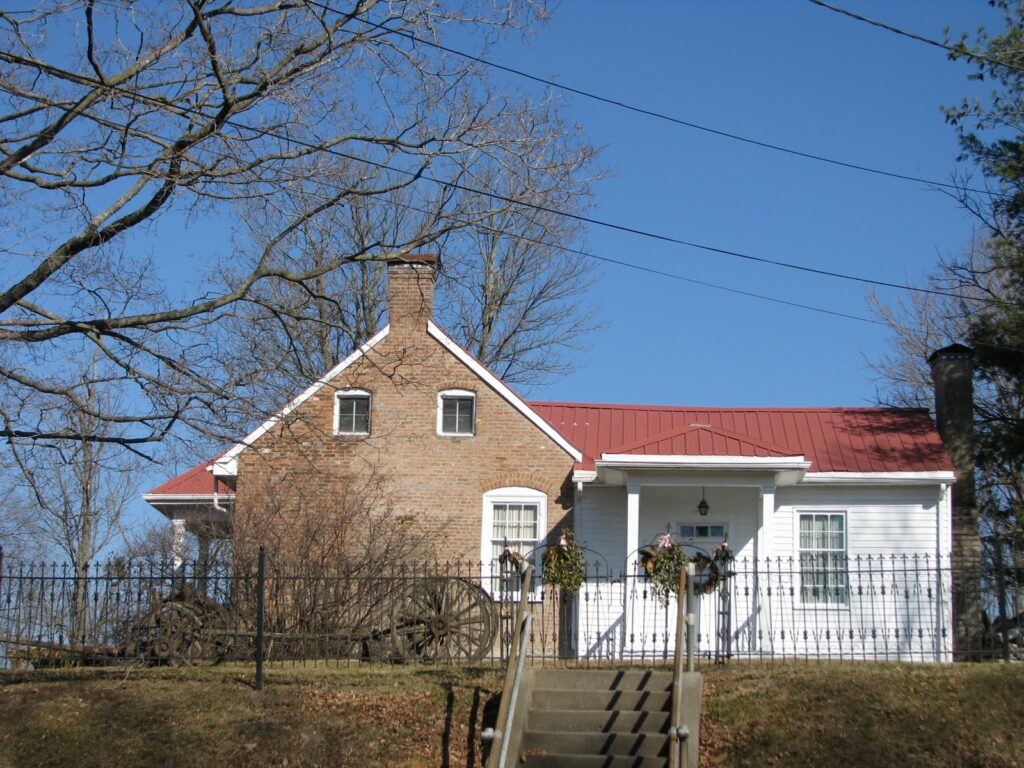Daniel Trabue was an early founder of Columbia and constructed the above house in 1823 (it has since been expanded). He served as a trustee for the town, the county sheriff, and justice of the peace. He operated a grist mill and a retail store. To be sure, the story of Columbia is not complete without reference to Trabue. But greater still, the story of Kentucky is incomplete without Trabue.
He was a fourth-generation North American Huguenot born in 1760 in Virginia’s Piedmont region. Trabue was a teenager when he encountered Indians along the Wilderness Road, was present at Daniel Boone’s court-martial following a loss to the Indians at Boonesborough. After serving three years in Kentucky, Trabue returned to Virginia to try his lot at business. It was during this time that he experienced, as a non-soldier, the events leading up to the colonist’s victory at Yorktown. By 1785, he yearned to return his young family to Kentucky and they settled in Fayette County.
In 1788, Trabue signed a petition to divide Fayette County, arguing that he was too far from the county seat of Lexington to be able to readily conduct business, caused an overburdened judicial docket and did not provide adequate representation in the Virginia legislature. The Virginia General Assembly agreed and Woodford County was born. In 1796, Trabue sold his Woodford County home and took his family from the Kentucky River basin to that of the Green River some 45-miles to the southwest in Green County.
In December 1801, the General Assembly created Adair County. Trabue’s home was one-quarter mile within Adair County and thus his “fortunes were to be tied to those of Adair County.” [cite] It was from here that he went on as an intregal part of the development and growth of Columbia.
At the age of 67, he wrote a narrative of his life. This narrative later became the origin of “Westward into Kentucky: The Narrative of Daniel Trabue.” (I am putting this book on my Kentucky ‘wish list’). Although narratives are often fraught with historical innacurracy, his accounts still make history all the richer. As was said in the introduction of Westward (the source of much of the above history):
Daniel Trabue had indeed been a pioneer in the land beyond the mountains. As a settler there, he had helped to wrest Kentucky from nature and from the Indian’s tenuous hold and to plant the white man’s culture in Trans-Appalachia. He had done all of this, and of equal importance he had left a rich and meaningful narrative about much of what he observed and did.

